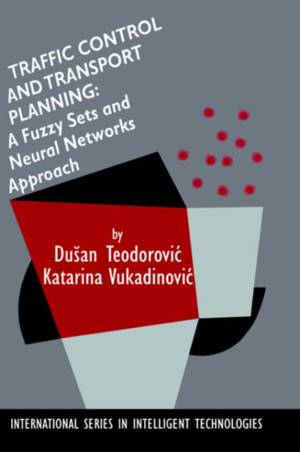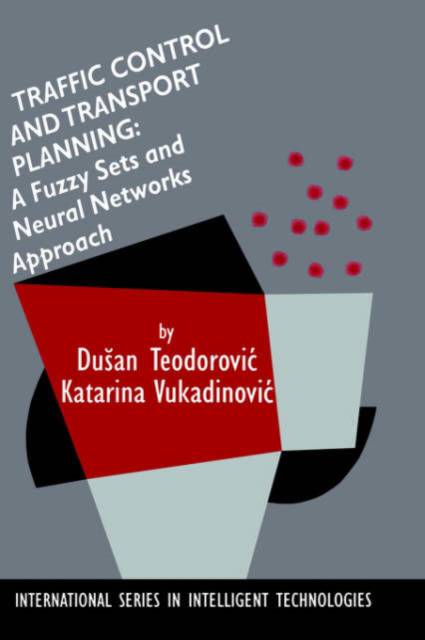
Je cadeautjes zeker op tijd in huis hebben voor de feestdagen? Kom langs in onze winkels en vind het perfecte geschenk!
- Afhalen na 1 uur in een winkel met voorraad
- Gratis thuislevering in België vanaf € 30
- Ruim aanbod met 7 miljoen producten
Je cadeautjes zeker op tijd in huis hebben voor de feestdagen? Kom langs in onze winkels en vind het perfecte geschenk!
- Afhalen na 1 uur in een winkel met voorraad
- Gratis thuislevering in België vanaf € 30
- Ruim aanbod met 7 miljoen producten
Zoeken
Traffic Control and Transport Planning:
A Fuzzy Sets and Neural Networks Approach
Dusan Teodorovic, Katarina Vukadinovic
€ 363,95
+ 727 punten
Uitvoering
Omschrijving
When solving real-life engineering problems, linguistic information is often encountered that is frequently hard to quantify using "classical" mathematical techniques. This linguistic information represents subjective knowledge. Through the assumptions made by the analyst when forming the mathematical model, the linguistic information is often ignored. On the other hand, a wide range of traffic and transportation engineering parameters are characterized by uncertainty, subjectivity, imprecision, and ambiguity. Human operators, dispatchers, drivers, and passengers use this subjective knowledge or linguistic information on a daily basis when making decisions. Decisions about route choice, mode of transportation, most suitable departure time, or dispatching trucks are made by drivers, passengers, or dispatchers. In each case the decision maker is a human. The environment in which a human expert (human controller) makes decisions is most often complex, making it difficult to formulate a suitable mathematical model. Thus, the development of fuzzy logic systems seems justified in such situations. In certain situations we accept linguistic information much more easily than numerical information. In the same vein, we are perfectly capable of accepting approximate numerical values and making decisions based on them. In a great number of cases we use approximate numerical values exclusively. It should be emphasized that the subjective estimates of different traffic parameters differs from dispatcher to dispatcher, driver to driver, and passenger to passenger.
Specificaties
Betrokkenen
- Auteur(s):
- Uitgeverij:
Inhoud
- Aantal bladzijden:
- 387
- Taal:
- Engels
- Reeks:
- Reeksnummer:
- nr. 13
Eigenschappen
- Productcode (EAN):
- 9780792383802
- Verschijningsdatum:
- 30/11/1998
- Uitvoering:
- Hardcover
- Formaat:
- Genaaid
- Afmetingen:
- 156 mm x 234 mm
- Gewicht:
- 752 g

Alleen bij Standaard Boekhandel
+ 727 punten op je klantenkaart van Standaard Boekhandel
Beoordelingen
We publiceren alleen reviews die voldoen aan de voorwaarden voor reviews. Bekijk onze voorwaarden voor reviews.









